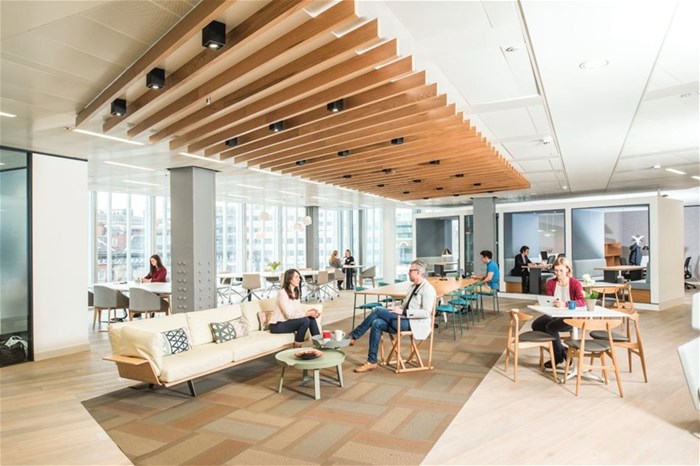While there remains much uncertainty around when businesses will be able to resume normal operations, the past few months have demonstrated an important new reality: Mobility is now the cornerstone of an effective flexible work strategy, and there may be no turning back.
While the pandemic forced many employers to adapt quickly to staff working remotely, it seems inevitable that this move towards flexible working will continue to have implications long after Covid-19 ceases to be a concern.
As lockdown measures ease or in some cases increase, many employers are now considering what their working model should look like going forward. Although mass remote working has had its challenges, most employers appear to have been successful in overcoming these. It then stands to reason that the benefits of flexible working for both employees and employers could be carried forward into life after lockdown.
Recent months have demonstrated that a great deal of work can be undertaken from the home. It has not been an easy transition for everyone. Some employees have reported finding it difficult to switch off and set boundaries between their work and their non-work activities.
In some cases, this has been compounded by not having a suitable workspace. Others have struggled to care for children during their normal working hours or suffered from a lack of adequate IT equipment. Employers may also have found it more difficult to communicate with their staff and maintain good working relationships within teams.
How the pandemic has normalised remote work, and what that might mean is the question every employer, large or small, is having to ask themselves. Will we go to the office again – and, if so, how often? But businesses in South Africa are also starting to think about the longer term, including alternative ways to structure work communication and hours as well as physical presence.
While ‘hybrid’ is key to understanding the more flexible future of work, it encompasses many possible systems. Hybrid work tends to include more freedom around when to work as well as where. It generally grants more autonomy to employees to fit work around the rest of their lives, rather than structuring other parts of a weekday around hours logged in an office. Ideally, it’s the best of both worlds: structure and sociability on one hand, and independence and flexibility on the other.
What impact will a ‘hybrid’ way of working have on how we communicate, connect and create? Will work-from-home be the great leveller in terms of gender equality and diversity? And what will work mean if our offices are virtual and we lose those day-to-day social interactions?
What happens to people who can’t work from home as well as those whose jobs depend on a steady flow of traffic into urban hubs. Can we learn from Covid-19 and build better safety nets for the most vulnerable workers? And if the future is digital, how do we make sure that those without a home digital infrastructure in the population, aren’t left behind?

Joanne Bushell
“We all know that work will never be the same, even if we are unsure of all the ways in which it will be different, so we have started asking the questions,” says Joanne Bushell, country lead for South Africa.
When Covid-19 hit, show-up culture was officially dead. No one was expected to show up anywhere. Suddenly companies were forced to leave the standard office buildings behind, and trust both technology and their employees to truly work remotely. So, what have we learnt so far?
Skipping the obligatory commute, feeling trusted by their bosses, and having the freedom to customise their days to their personal needs, has sparked different possibilities for ways to work. However, while they highlight these benefits, they also complain that the home office is cramped, boring and lonely after a while.
“Companies have discovered that both remote work and trusting employees is not only possible, but in many cases more profitable. Employees remain effective and productive, and they feel better, too. Many are now questioning the need for the big, expensive and static office they used to have,” Bushell adds.
So, if the general population won't be going back to the office full-time, but also won’t be staying at home – what is the future of workspaces?
Covid-19 taught us the importance of flexibility and trust, from economic, sustainability and health perspectives. As companies dare to explore options beyond the ‘one-size-fits-all’ office solution, we can start sharing spaces in a new way. Imagine if you could have access to inspiring new locations adapted for different tasks and projects – wherever you are.
Consequently, we will need a sustainable reset of the workplace, not a short-term one. It will require a new culture and it must be dominated by two major themes: a flexible and agile approach to work strategy.
While we have been talking about flexible (often translating as ‘remote’) work for over 50 years, it became a necessity with this crisis. Flexibility is now a given, although questions remain about how fast we transition back and to what extent.
There are many benefits of flexible working for employees, such as a better work/life balance, less time and money spent commuting, and the ability to juggle work and caring responsibilities more easily. Employers can also benefit from flexible working – for example, by saving on rent, seeing improved staff morale and potentially increased productivity.
True workplace mobility is not confined to devices and apps; it is also inclusive of different working preferences, including when and where employees choose to work. To retain and compete for talent in the increasingly mobile economy, businesses may need to rethink both the traditional office setting and the typical work schedule.
While it has yet to be precisely determined what the new normal will look like for businesses once the Covid-19 pandemic ends, prepare yourselves for a new mode of work that welcomes greater flexibility and fosters increased mobility across the workforce. Anticipate a larger number of workers expecting more remote work privileges throughout the workweek.
Also, be prepared to invest in technology and tools that enable work across multiple devices more fluidly and help bridge the divide between those who return to the office and those who remain remote. Businesses that embrace these changes and empower their workers with flexible policies and the right technology will find themselves better equipped to compete and differentiate in the global economy.
The companies that thrive will be the ones that solve the new work equation – flexibility plus agility equals resilience.
About IWG
IWG is the global operator of leading workspace providers. Our companies help more than 2.5 million people and their businesses to work more productively. We do so by providing a choice of professional, inspiring and collaborative workspaces, communities and services.
Digitalisation and new technologies are transforming the world of work. People want the personal productivity benefits of living and working how and where they want. Businesses want the financial and strategic benefits. Our customers are start-ups, small and medium-sized enterprises, and large multinationals. With unique business goals, people and aspirations. They want workspaces and communities to match their needs. They want choice.
Through our companies we provide that choice, and serve the whole world of work: Regus, Spaces, No18, Basepoint, Open Office and Signature. We create personal, financial and strategic value for businesses of every size. From some of the most exciting companies and well-known organisations on the planet, to individuals and the next generation of industry leaders. All of them harness the power of flexible working to increase their productivity, efficiency, agility and market proximity.
We’re reaching a tipping point. The workspace revolution is coming.
For more information please visit:
https://www.iwgplc.com/
https://www.facebook.com/RegusGlobal
https://www.linkedin.com/company/iwg-plc




































